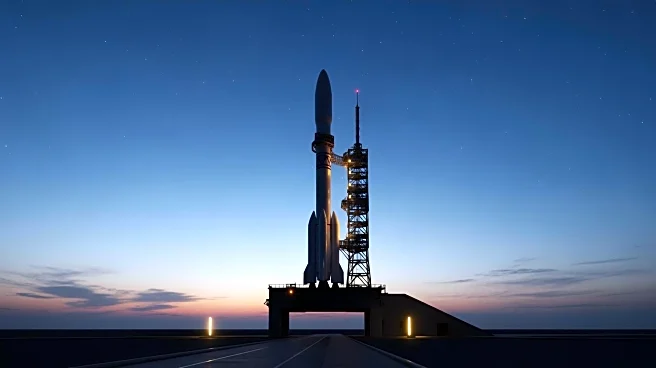What's Happening?
A recent survey conducted by the organization behind the Tokyo Game Show reveals that over 50% of Japanese video game developers are now integrating artificial intelligence (AI) into their production processes. The 2025 CESA Video Game Industry Report, which surveyed 54 companies including Sega, Capcom, and Level-5, found that AI is being used for visual assets, story and text creation, and programming support. Some developers are even utilizing AI to create in-house game engines. This trend aligns with global patterns, where a majority of game developers are adopting AI systems despite concerns from workers. Companies like Sony and Nintendo have expressed that AI should support creativity rather than replace it, emphasizing the importance of maintaining a human touch in game development.
Why It's Important?
The integration of AI in game development is significant as it represents a shift in how games are created, potentially increasing efficiency and innovation in the industry. For U.S. companies like Activision, which are already using AI tools, this trend could lead to enhanced game development processes and competitive advantages. However, it also raises concerns among workers, particularly voice actors, about the potential for AI to replace human roles, as evidenced by the SAG-AFTRA strike over AI protections. The balance between AI and human creativity is crucial, as it impacts job security and the artistic integrity of video games.
What's Next?
As AI continues to be integrated into game development, companies may need to address worker concerns and establish guidelines to ensure AI complements rather than replaces human creativity. This could involve developing ethical standards for AI use in creative industries and negotiating agreements with labor unions to protect jobs. Additionally, ongoing advancements in AI technology may lead to new applications in game development, prompting companies to adapt their strategies and explore innovative uses of AI.
Beyond the Headlines
The increasing use of AI in game development could have broader implications for the industry, including changes in the skill sets required for game developers and shifts in the types of games produced. Ethical considerations regarding AI's role in creativity and employment may also become more prominent, influencing public policy and industry standards. As AI technology evolves, it may challenge traditional notions of authorship and creativity, prompting discussions about the future of artistic expression in digital media.









